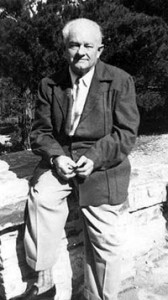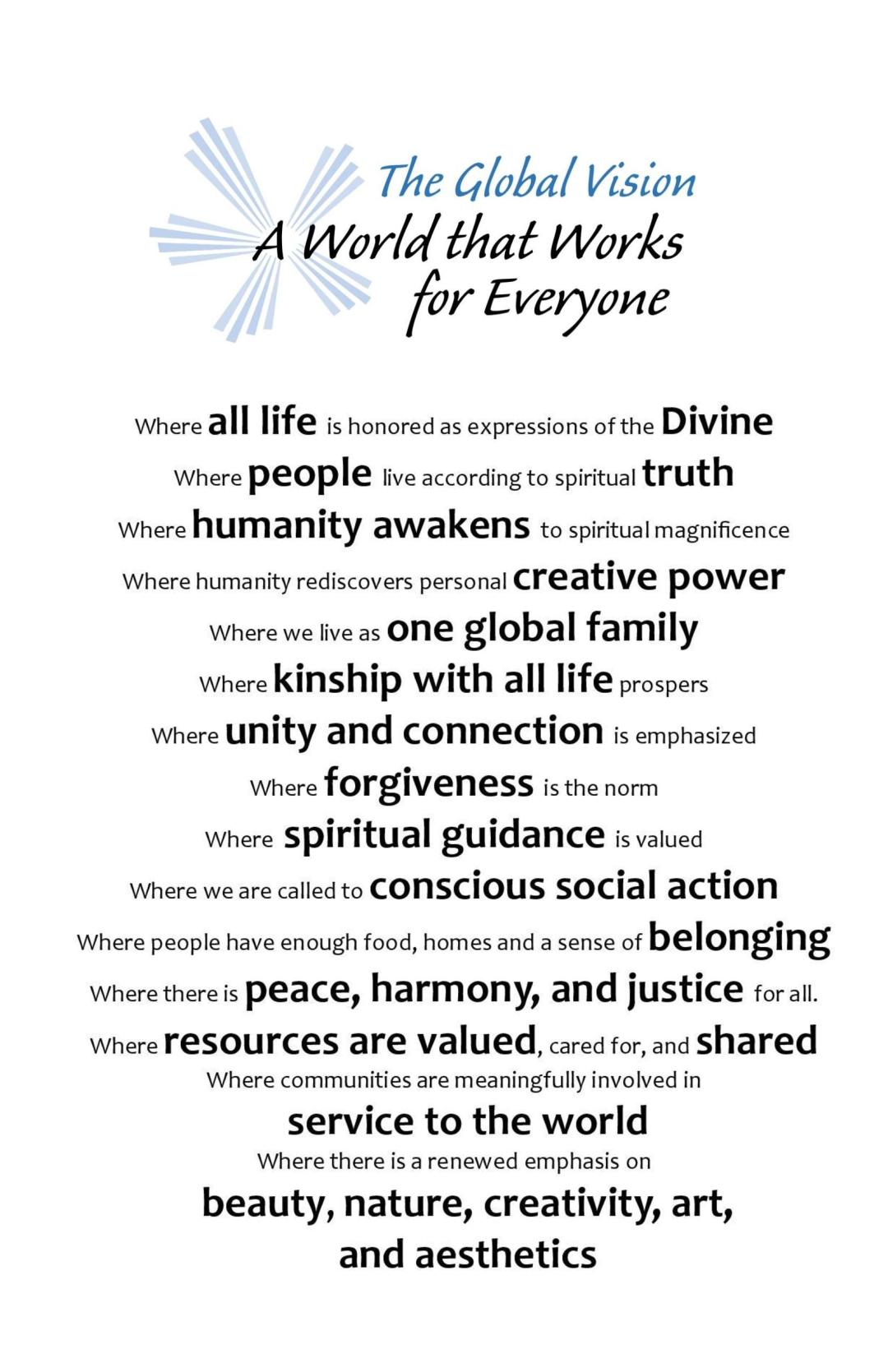What are the Centers For Spiritual Living?
The Centers for Spiritual Living support positive global transformation through personal transformation. Our founder Dr. Ernest Holmes’s work in the Science of Mind and Spirit is recognized today as one of the leading viewpoints in modern metaphysics and New Thought. This universal philosophy provides us with a personal spiritual path, an understanding of our relationship with the Universe, and a connected and joyful approach to daily living.
What is New Thought Spirituality?
Once called the “religion of healthy-mindedness” by philosopher William James, the early New Thought movement was driven by the discovery that physical healing was possible through the power of mind and spiritual awareness. As that initial idea unfolded into successful application, practitioners of New Thought began to see that the power of an uplifted consciousness could also bring healing to negative circumstances and conditions in one’s personal life. As it evolves today, twenty-first century New Thought is driven by a far broader intention. Planetary healing through self-realization is emerging as the new promise of these teachings.
- In the infinite goodness of Spirit
- In the spiritual nature of Mind, Body, Heart & Soul
- In the Divinity of all life, of all creation
- That love is the greatest power
- That the highest God and the innermost God is One God
- In the inherent goodness of ourselves and of each other
- That diversity is the nature of creation
- That we have the power to change our lives, and our world
Declaration of Principles / What We Believe by Ernest Holmes was published in the first issue of Science of Mind magazine, October, 1927. This edited version uses gender-inclusive language:
- We believe in God, the Living Spirit Almighty; one, indestructible, absolute and self-existent Cause. This One manifests itself in and through all creation but is not absorbed by its creation. The manifest universe is the body of God; it is the logical and necessary outcome of the infinite self-knowingness of God.
- We believe in the incarnation of the Spirit in everyone and that all people are incarnations of the One Spirit.
- We believe in the eternality, the immortality, and the continuity of the individual soul, forever and ever expanding.
- We believe that Heaven is within us and that we experience it to the degree that we become conscious of it.
- We believe the ultimate goal of life to be a complete emancipation from all discord of every nature, and that this goal is sure to be attained by all.
- We believe in the unity of all life, and that the highest God and the innermost God is one God.
- We believe that God is personal to all who feel this Indwelling Presence.
- We believe in the direct revelation of Truth through the intuitive and spiritual nature of the individual, and that any person may become a revealer of Truth who lives in close contact with the indwelling God.
- We believe that the Universal Spirit, which is God, operates through a Universal Mind, which is the Law of God; and that we are surrounded by this Creative Mind which receives the direct impress of our thought and acts upon it.
- We believe in the healing of the sick through the power of this Mind.
- We believe in the control of conditions through the power of this Mind.
- We believe in the eternal Goodness, the eternal Loving-kindness, and the eternal Givingness of Life to all.
- We believe in our own soul, our own spirit, and our own destiny; for we understand that the life of all is God.
We envision a world:
- that is free of homelessness, violence, war, hunger, separation and disenfranchisement
- in which there is generous and continuous sharing of heart and resources
- in which forgiveness, whether for errors, injustices, or debts, is the norm
- which has renewed its emphasis on beauty, nature and love through a resurgence of creativity, art and aesthetics
- in which fellowship prospers and connects through the guidance of spiritual wisdom and experience
- in which we live and grow as One Human Family.
Our spiritual community is committed to bringing this vision forth through our ministries and our teaching.
 “There is a power for good in the universe greater than you are—and you can use it.” These words are part of the rich legacy of Ernest Holmes. They are the cornerstone of Religious Science—the culmination of his lifetime of study and contemplation.
“There is a power for good in the universe greater than you are—and you can use it.” These words are part of the rich legacy of Ernest Holmes. They are the cornerstone of Religious Science—the culmination of his lifetime of study and contemplation.
Ernest Holmes was born on a small farm near Lincoln, Maine, on January 21, 1887. Ninth of nine sons born to William and Anna Heath Holmes, Ernest was named after a poetic young preacher of that area, Rev. Ernest Shurtleff. Although he dropped out of school at the age of 15, Ernest had an insatiable desire to learn the universal truths and imperishable ideas that manifested through the ages in literature, art, science, philosophy and religion. He spent a lifetime synthesizing his discoveries.
Ernest was deeply influenced by the writings of Ralph Waldo Emerson, one of the original Transcendentalists whose work impacted the early development of what became known as the New Thought movement. Another source of inspiration was the writing of Thomas Troward, a one-time English judge in Punjab, India. Then, while studying public speaking in Boston, Holmes became interested in the thinking of some of his fellow students who were Christian Scientists. He was especially intrigued by the healings they believed possible as a result of affirmative prayer.
In 1912, Ernest came to California on an exploratory tour and to visit his older brother Fenwicke, who had built a small, thriving church in Venice. Finding the Los Angeles area a place of progressive people, stimulating intellectuals and seekers of truth, Ernest stayed. He took a job as a purchasing agent for the city of Venice, which gave him time for study.
An engineer who frequented Holmes’ purchasing office became curious about his books on philosophy and metaphysics and invited him to his home to talk to a few of his friends. That first talk led to others, in the homes of other friends. Then one evening, a lady informed Ernest that she had told the librarian at the big Metaphysical Library that he would talk there the following Thursday. The hall rented for $1.00 a class, and the admission price per person was 25 cents. He decided to talk on Troward and the Edinburgh Lectures. Enough people showed up that he went home with a $5.00 gold piece after paying his rental.
That was 1916.
Within the next two years, Ernest was speaking to thousands of people a week in Los Angeles. Soon he began traveling around the country, developing a national reputation as a man who stimulated others to think for themselves. Wherever he went, people wanted to hear his message. They were ready for what he had already embarked upon: the great synthesis that would result in the book, The Science of Mind.









